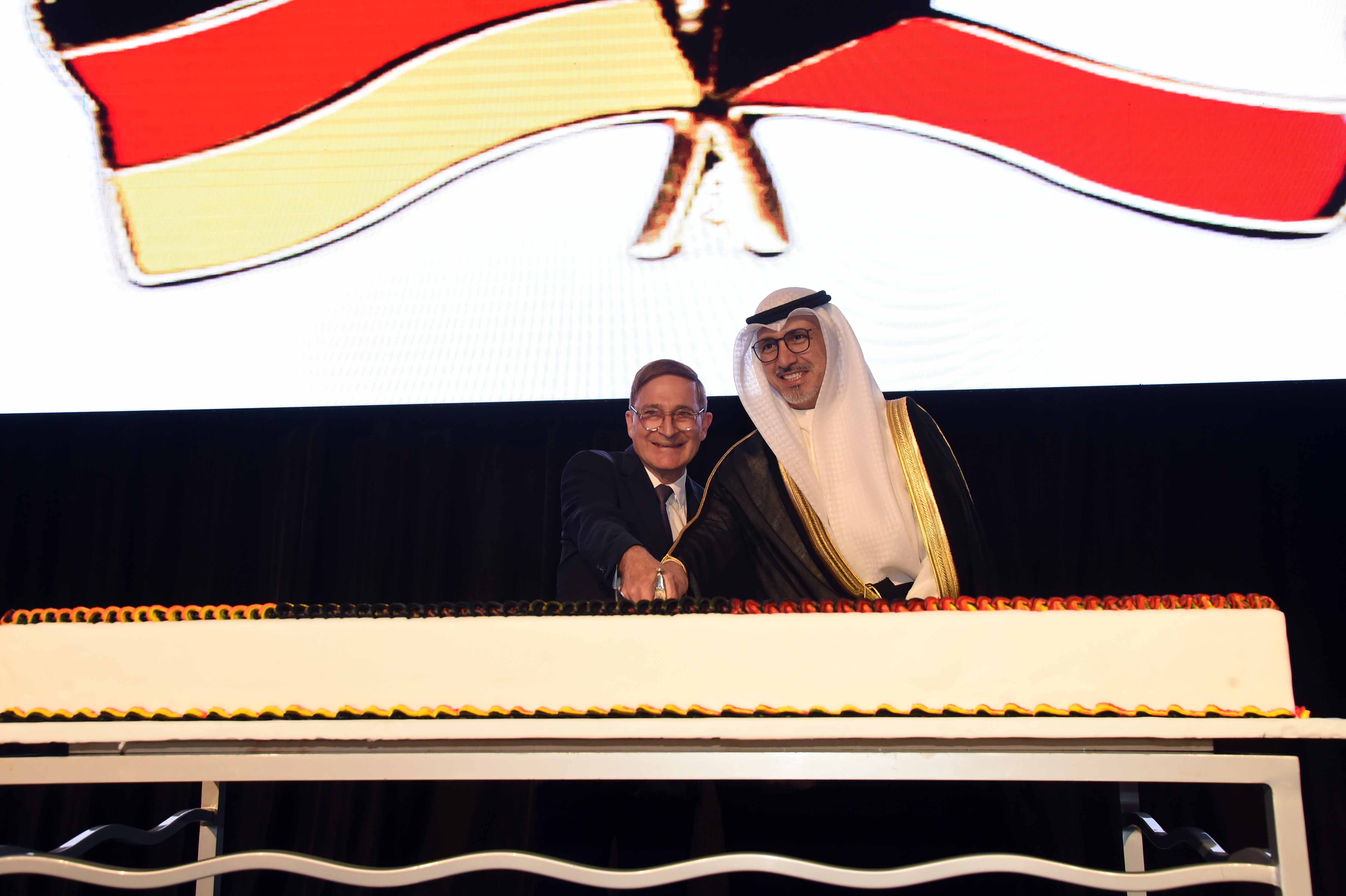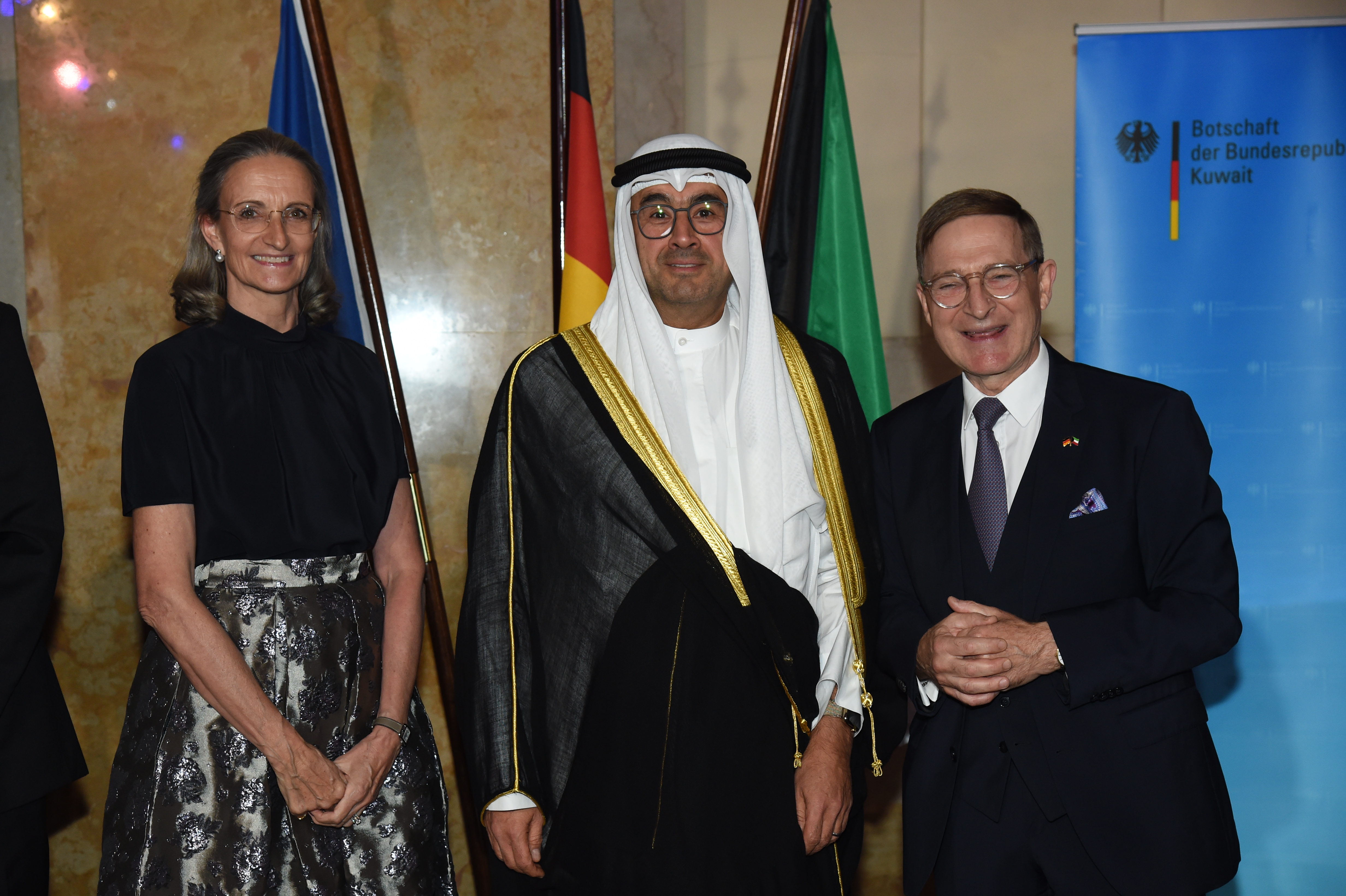Schengen, economy high on GCC-EU summit’s agenda
By Passant Hisham
KUWAIT: As the first-ever summit between the European Union and the Gulf Cooperation Council approaches, Assistant Foreign Minister for European Affairs Sadiq Marafi highlighted that key discussions will focus on the political and economic state of the region, economic ties, and Schengen visa matters. In a brief interview with the press during the 34th Day of German Unity celebrations, he noted that preparations are ongoing in anticipation of the summit next week. He expressed significant interest from both European and Gulf sides for what he described as “the first extraordinary summit, held under exceptional circumstances in the region.”
Referring to Germany as “a key strategic partner,” Marafi mentioned that a strategic partnership document with Germany at the foreign ministers’ level is set to be signed soon. With the presence of Minister of Commerce Khalifa Al-Ajeel at the celebration, he stated that it serves as a testament to Germany’s economic prowess and the strong economic relationship between the two countries, pointing out that the economic partnership with Germany ranks among the strongest.
German Ambassador to Kuwait Hans-Christian Freiherr von Reibnitz echoed these sentiments, noting the fruitful exchanges between Kuwait and Germany over the past year. He highlighted the success of cultural events, engagement with young Kuwaitis, business meetings, and visits from German MPs and officials. As the two countries near the conclusion of their 60th year of diplomatic relations, he confirmed that they are poised to sign a strategic partnership document. “We are well prepared for an even brighter future in our relationship over the next 60 years,” he said.
Turning to broader global issues, the ambassador remarked: “We live in a time of escalating crises affecting many parts of the world, particularly the region around us.” He lamented the prevalence of force and retaliation, which, he said, has come at the cost of countless lives, destroyed livelihoods, and shattered hopes for future generations. He called for deeper reflection on this cycle of violence. “Why do we seem to give in to this vicious circle? Should violence and revenge really guide our political analysis and actions?”
On Unity Day, the ambassador highlighted the importance of peaceful change over war and destruction, recalling the triumph of reason and humanity. “This day holds immense meaning for Germany, for Europe, and perhaps for the world as a whole,” he said. He also addressed the importance of tackling ongoing global challenges, such as climate change, energy and water scarcity, and equitable resource distribution. He noted that the challenges “remain pressing despite the distressing news from regions like Gaza and Ukraine,” and stressed that they must be approached within a fair regulatory framework. Respecting the rule of law, he added, is fundamental to German foreign policy and its relationship with Kuwait.


















